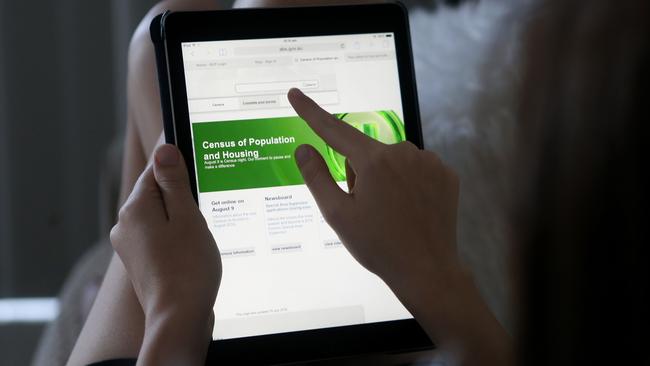A demographer debunks the myths about the Census
WE’VE all got to do it and a lot of people are worried about it. A demographer debunks the myths about the Census.

SPURRED on by the publication of inaccurate details about the Census by media outlets that ought to know better, government conspiracy theories have dominated the lead up to this year’s undertaking.
This has led to widespread calls to boycott or provide deliberately misleading information in protest, without anyone stopping to consider the potential consequences of these actions.
Census data is an incredibly valuable tool which is integral to the planning of Australia’s future. We cannot afford for the Census to be sabotaged.
Concerns have been raised about privacy, security and government powers. Certainly, fears over data linkage and longer retention of names and addresses as part of Census 2016 are understandable, but the misinformed and exaggerated claims relating to the changes have the potential to undermine our ability to assess the wellbeing of our most important capital — us.
Not to mention the adverse consequences which would result from boycotts and false responses for informing our understanding about the composition and geographic distribution of populations across Australia.
Evidence-based decision making is a feature of effective and efficient modern government. I think we’d all agree we want governments to make decisions based on evidence rather than a whim, but evidence is only as good as the data that informs it.
Say what you will about the Federal Government, but know this: the Australian Bureau of Statistics (ABS) is governed by a legislative framework by which it — as Australia’s statistical authority — is mandated to collect the Census and keep it safe.
More importantly, the ABS is fiercely independent of government, and takes our privacy and data security very seriously. The legislation prohibits the ABS from releasing any identifiable information outside the confines of the closely guarded Bureau — not even the prime minister can get his hands on your Census data!
It doesn’t stop there. The ABS only releases de-identified, confidentialised data. This means you cannot be identified. Ask some researchers and they’ll tell you of receiving requested data that has been so highly confidentialised by the ABS it cannot be used in intended analyses.
Compare the ABS and Census to your passport (which does enable tracking) and the suite of Human Services data (which keeps your name alongside your information). So what is it that has people so worried about this Census — surely data innovation that makes our lives better is a good thing?
Consider your local area: parks, footpaths, shopping centres, food outlets, sporting and entertainment facilities, doctors, hospitals, schools, community centres, employment and industry, transport networks, power and water supplies, environment, and waste management. The list goes on.
These services are informed by Census information. Sabotaging this year’s Census risks our future in what might be subtle ways now but with substantial adverse consequences for everyone later on.
Let’s not take sewerage and waste management for granted, please — I enjoy my flushable toilet!
We must also consider the significant benefits of name and address data retention.
Linking Census — to produce data which is stripped of any identifiable details — can be used to produce more accurate information to shape policy. And Australia is behind the times — Canada, United Kingdom, United States, and New Zealand retain names and address for data integration.
Until linkage was undertaken in a recent ABS project incomplete and incorrect data was relied upon to calculate the life expectancy gap between Indigenous and non-Indigenous Australians.
This is because data inputs relied on third party identification of Indigenous status via deaths notification, rather than self-reported (from the Census). In other words, the Closing the Gap target was not properly informed.
Take schools as a potential area for data innovation. Without accurate data we cannot predict which areas are going to need new schools or more investment for existing ones. I’m sure parents in inner Sydney will tell you of the nightmare it is enrolling kids in local primary schools and the inadequate infrastructure. Smarter use of Census data could result in greater preparedness for the incoming of five and six year olds into kindergarten.
Ultimately, sabotaging Census isn’t about you or me, it’s about all of us — the whole is only as good as the sum of its parts. So let’s remove our tinfoil hats, and take to the keyboard or pen and be proud to say who we are in this year’s Census (Tuesday, August 9).
We all have a stake in the future of this country. Let’s play a part.
Dr Liz Allen is a demographer at the Centre for Aboriginal Economic Policy Research in the Australian National University. Follow her on Twitter @DrDemography



